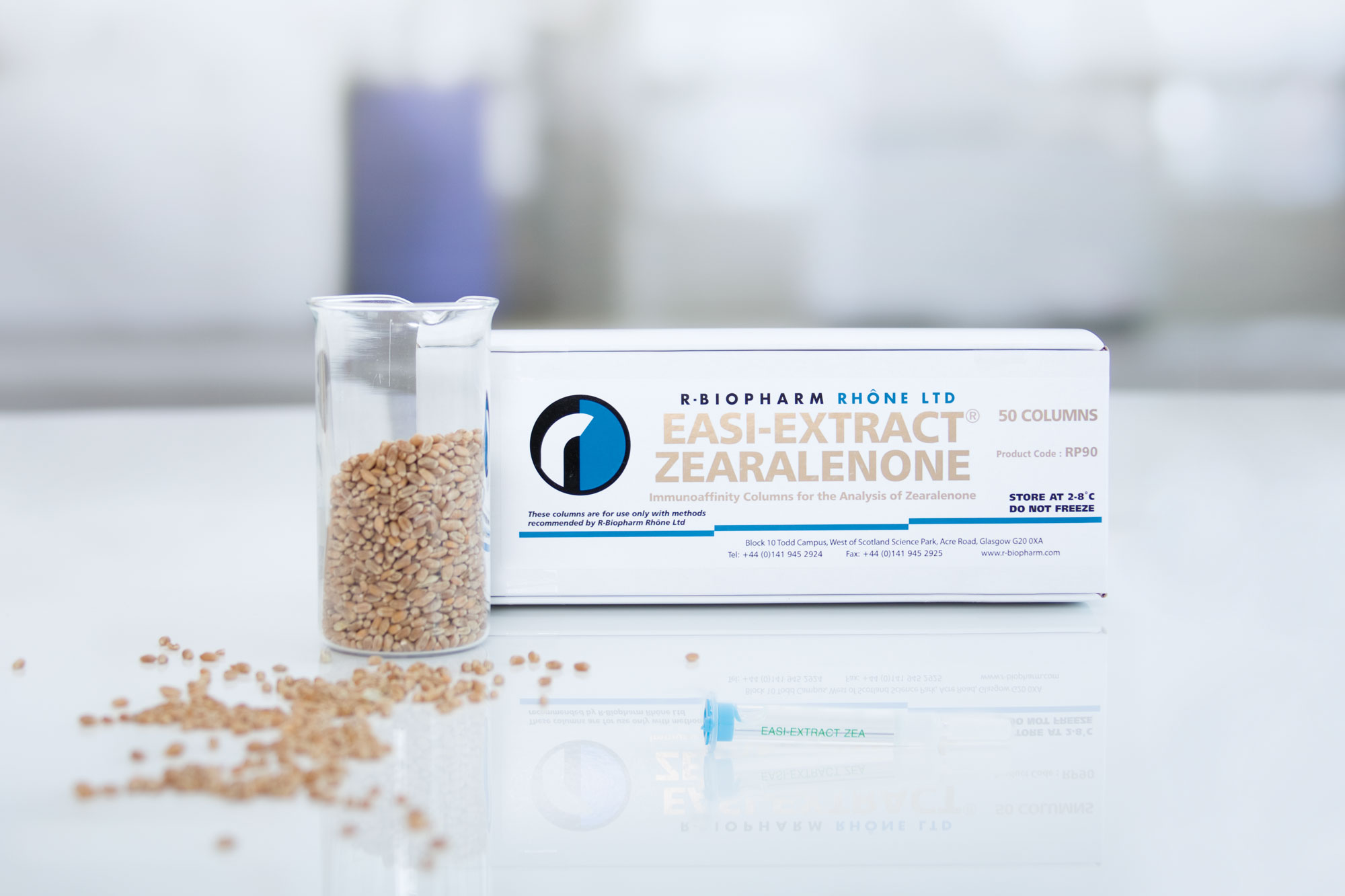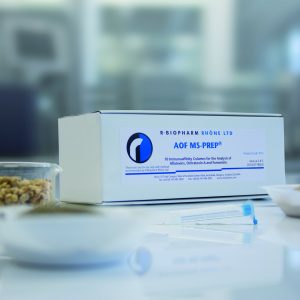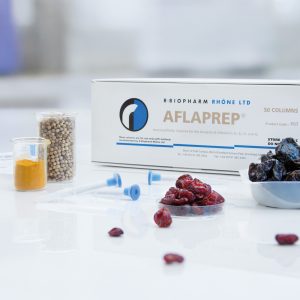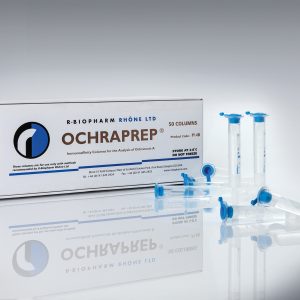Description
Intended use:
Immunoaffinity columns for use in conjunction with HPLC or LC-MS/MS for detection of zearalenone in a wide range of commodities.
General Information:
The procedure is based on monoclonal antibody technology, which makes the test highly specific, sensitive, rapid and simple to perform. Improved clean-up and concentration of toxins from complex food matrices results in reduced chromatography interference and lower detection limits. The columns contain a gel suspension of monoclonal antibody specific to the toxin of interest. Following extraction of the toxin the sample extract is filtered, diluted and passed slowly through the immunoaffinity column. Any toxin which is present in the sample is retained by the antibody within the gel suspension. The column is washed to remove unbound material and the toxin is then released from the column following elution with solvent. The eluate is collected prior to analysis by HPLC or LC-MS/MS.
Benefit:
- Can be used for the analysis of certain metabolites and masked mycotoxins.
- The columns give excellent recoveries and low % RSD.
- The columns are wide format allowing the sample to flow easily by gravity.
Accessories:
| Article Numbers | RBRRP91 / RBRRP90 |
|---|---|
| Test format | 10 columns (3 ml format) (RBRRP91), 50 columns (3 ml format) (RBRRP90) |
| Sample preparation | A representative sample should be obtained by following one of the officially recognised sampling procedures. It is recommended that a minimum of 1 kg of representative sample is finely ground and a portion (10 – 50 g dependent on method used) of this is removed and extracted. |
| Incubation time | 60 sec |
| LOD (Detection limit) | 1.56 ng/ml (ppt) |
| Validated matrices | Food and feed. |
| Detected analyte | Zearalenon in food and feed. |
| Evaluation | It is recommended to run at least a 3 – 6 point calibration curve. In constructing a suitable curve the levels of the calibration standards should bracket or include the range of expected results. The diluted standard solutions should be prepared fresh on the day of analysis and used within a 24 hour period. |
| Approvals | Used in CEN and BCR collaborative trials. |
| Instructions | |
|---|---|
| MSDS |




